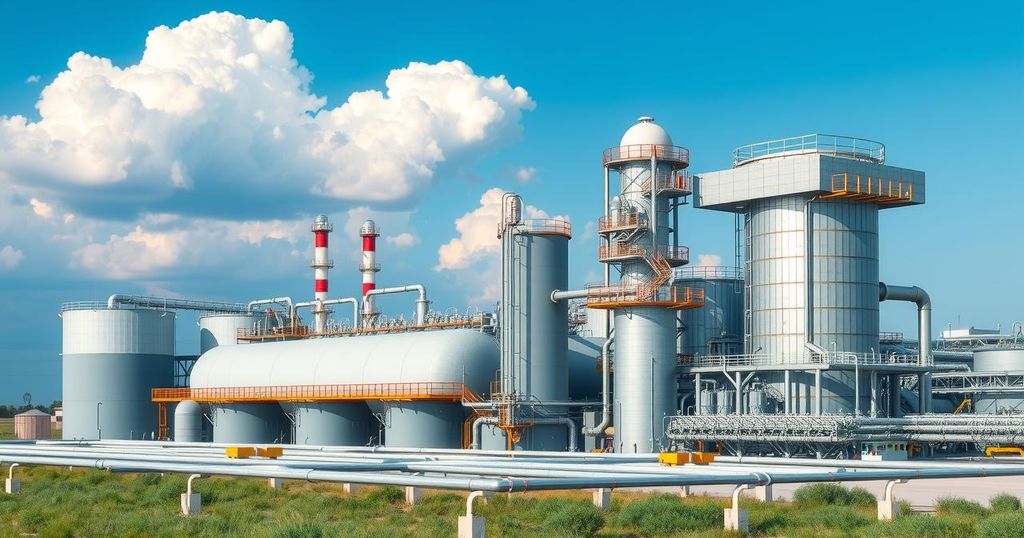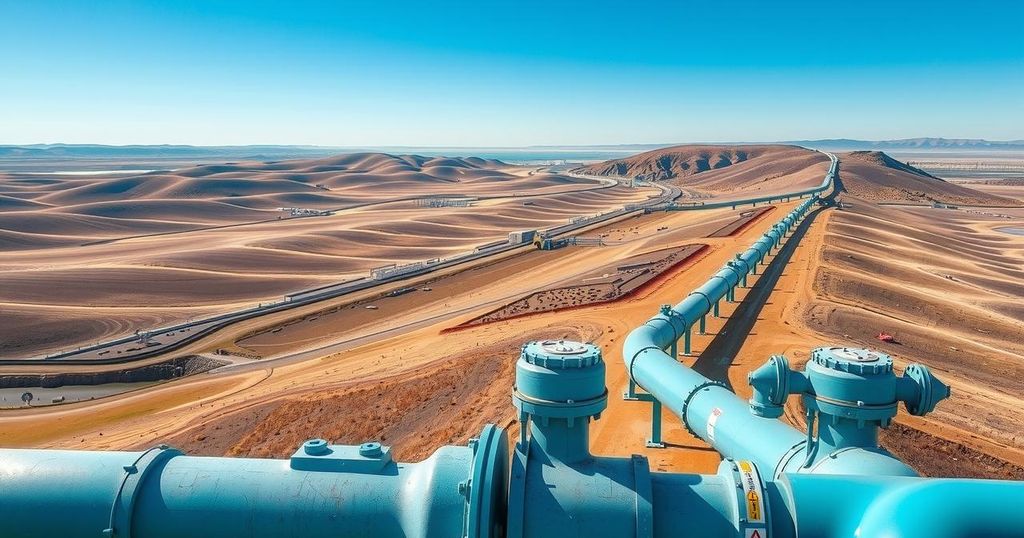The U.S. will provide a $4.7 billion loan for a Mozambique gas plant, raising concerns about human rights and environmental issues. The EXIM approval is crucial for financing one of Africa’s largest energy projects. This financing decision contradicts past commitments to limit public fossil fuel funding. Investigations into TotalEnergies for human rights violations complicate the project’s future and reflect broader tensions in U.S. climate policy.
The United States has approved a $4.7 billion loan for a fossil gas plant in Mozambique, which has been criticized as a “carbon bomb” amid allegations of human rights abuses. This financial support, provided by the U.S. Export-Import Bank (EXIM), is linked to the liquefied natural gas (LNG) project managed by French energy firm TotalEnergies in the Cabo Delgado region. While EXIM has not confirmed the deal publicly, reports of its approval have circulated widely.
Obtaining U.S. backing is deemed crucial for unlocking additional financing for this significant energy initiative, projected to cost a total of $20 billion, making it one of Africa’s largest energy projects. The approval of the loan is noteworthy as it represents a reversal from a previous stance taken by wealthy nations, including the U.S., regarding restrictions on public funding for overseas oil and gas projects.
Previously, the U.S. export credit agency had committed to fund the Mozambique project in 2019. However, a fresh approval was necessary following a contractual “force majeure” declaration made by TotalEnergies in 2021, prompting construction to halt due to an attack by the Al-Shabaab militant group. This assault claimed the lives of approximately 1,200 civilians in the region.
The French authorities are currently investigating Total for potential involuntary manslaughter due to allegations of negligence regarding the safety of subcontractors following the attack. TotalEnergies has denied these claims, asserting it had no prior knowledge of the disturbing incidents reported by survivors. Despite hopes to restart construction by 2024, Total has acknowledged that operations will not resume until 2029 at the earliest due to security and funding concerns.
Patrick Pouyanné, the CEO of TotalEnergies, sought to gain support for the project from the Biden administration, but efforts did not yield the desired results. He noted, “now you have a functional US EXIM” and emphasized that the majority of contracts have been awarded to U.S. companies, highlighting this as a factor influencing government support.
Environmental advocates have condemned the Mozambique LNG initiative, labeling it a “carbon bomb” and a threat to global climate stability. Estimates suggest it could generate up to 121 million tons of CO2 annually over its operational lifespan of almost 40 years. Collin Rees, campaign manager at Oil Change International, characterized the project as “a climate and human rights nightmare.”
Critics assert that the funding for the fossil fuel project by the Trump administration contradicts their stance on reducing government expenditures for public welfare. Kate DeAngelis from Friends of the Earth USA criticized the loan as a significant waste of taxpayer resources. Under the Trump administration, there was a considerable reduction of U.S. international aid programs, raising further concerns regarding the allocation of funds benefiting foreign gas enterprises.
The financial support for Total’s LNG venture in Mozambique also received backing from the British and Dutch export credit agencies, which are currently re-evaluating their commitments. Reports indicate that the U.K. government is considering legal implications related to withdrawing its support, previously set at £1.15 billion ($1.49 billion).
Despite a push by the Biden administration to curb international funding for fossil fuel projects, the EXIM’s decision indicates a complex contradiction. Earlier pledges made during the COP26 climate summit to end this funding by the end of 2022 have faced setbacks due to geopolitical tensions and opposition from specific member states, complicating consensus on climate financing efforts.
In summary, the U.S. government’s approval of a multi-billion-dollar loan for the Mozambique gas plant has reignited concerns regarding human rights abuses and environmental impacts associated with fossil fuel projects. This financing, facilitated by the U.S. Export-Import Bank, underscores a shift in policy away from previous commitments aimed at limiting public funding for fossil fuels abroad. The juxtaposition between funding for such initiatives while advocating for climate stability calls into question the sincerity of commitments made at international climate summits. As support from other countries remains under scrutiny, the future of this project and its implications for communities and the environment in Mozambique remain uncertain.
Original Source: www.climatechangenews.com




